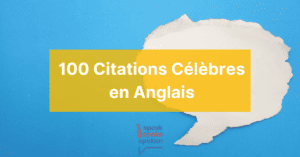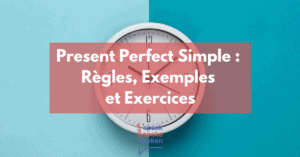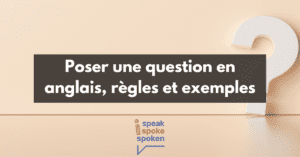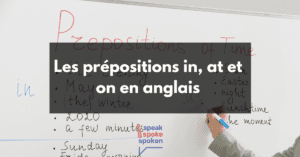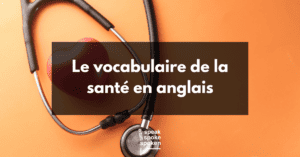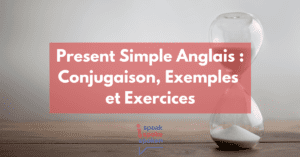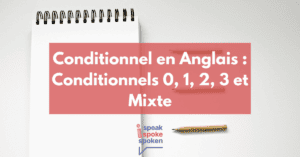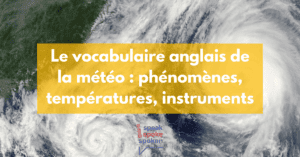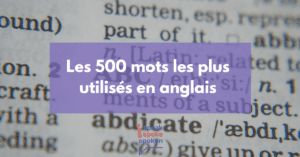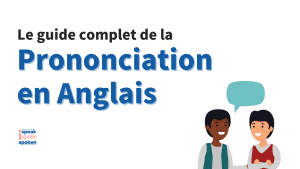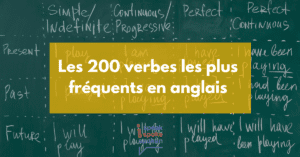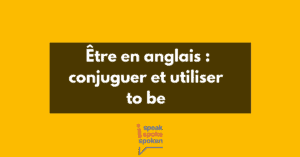 Adrien Jourdan
Adrien Jourdan
Director, manager and course creator
ISpeakSpokeSpoken
I’m firmly convinced that anyone can express themselves in English with the right methods, the right trainer and… a bit of time and the means to get there.
That’s why, since 2016, I’ve devoted most of my days to developing the ISpeakSpokeSpoken community and coordinating the team so I can help YOU learn English and speak it fluently.
My favorite word in English? Ombudsman /ˈɑːm.bədz.mən/ which means mediator and comes straight from Scandinavia.


A piece of my story
I grew up on my parents’ goat farm in a remote hamlet between Saint Etienne and Clermont Ferrand in the Massif Central.
After a month of English at college, the first English mark fell: 6.5 / 20, the worst in the class. To top it all off, the teacher graded the papers from best to worst…
By the end of high school, I was doing quite well in English, but I couldn’t make myself understood orally. Mostly because of my poor pronunciation, my French accent.
But I was firmly convinced that mastering English would be an indispensable asset for my career. Without knowing that I was going to make it my profession… to help YOU.
With a degree in Applied Foreign Languages (English and German) and a Master’s degree from a business school, I’ve since learned Russian, can speak Spanish and am starting to get by in Estonian. I even taught F.L.E. (French as a Foreign Language) in Russia almost 10 years ago.
As a traveler, I spent 2 years in Germany, 3 years in Russia and 2 years in Estonia.

My approach
to teach you English
on ISpeakSpokeSpoken


A language is above all a tool for communication. I deeply believe that language learning should not be an academic subject for most of you. But that’s how learning English often feels: technical, boring, uninteresting, impractical. Outside ALL concrete reality.
Particular attention needs to be paid to pronunciation (through phonetics, for example). Indeed, if a language is used to communicate, you need to be understood by your interlocutors. And in English, that means working specifically on your accent. Otherwise, your oral presentation will never be up to scratch.
Learning grammar is essential. But it should be done in a concrete way: with as many examples as possible! The same goes for learning vocabulary: there are many tricks to help you memorize words and expressions more easily.
These elements are essential for practicing English. PRACTICE is the only way to finally speak English correctly and with confidence. It allows you to memorize and apply what you’ve already seen, while having fun at the same time. If it’s well done.
You can see my training style and pedagogy in action by clicking on this link to access the YouTube videos.
My qualifications
to help you
I have a degree in foreign languages from France (Université Jean Monnet de Saint-Étienne) and Germany (Bergische Universität Wuppertal), with honors.
I taught French as a foreign language in a private school (mostly Russian-speaking students).
I took the Cambridge Proficiency Exam (CPE), the highest certification awarded by the organization. It corresponds to level C2 in English.
5 years after its launch, ISpeakSpokeSpoken now has over 10,000 students and a community of over 250,000 regular course participants.
My approach
is for you, if…
You have no opportunity to practice English, so you make little or no progress.
You need to be able to talk to English speakers to improve your skills.
You think your accent is (really) bad.
You’re (a little) ashamed of your English and it frustrates you every time you have to say a word. It even prevents you from making yourself understood when you’re trying to get a sentence across.
You’ve already started learning English again after a break, but you soon gave up…
Or maybe you’re feeling (hyper) unmotivated. Because you think, and rightly so, that you’re not using the right method(s) to FINALLY be able to speak English.
Not to mention the fact that, when speaking, you often lack one or more words or basic expressions to make yourself understood and to form your sentences correctly.
English resources
created by Adrien
- 100 citations célèbres en anglais pour faire bonne impression dans une discussion
- 200 noms d’animaux en anglais + 40 expressions qui parlent d’animaux
- 40 phrases indispensables en anglais pour faire bonne impression
- 5 minutes montre en main pour apprendre le vocabulaire de la famille en anglais
- 50 mots de liaison (connecteurs logiques) en anglais classés par thème
- 70 expressions idiomatiques indispensables en anglais
- Adjectifs possessifs en anglais : définition, tableaux, exemples et exercice
- Apprenez l’utilisation des quantifieurs anglais
- Can ou Could en anglais ? Explications et exemples simples
- Ces 20 mots anglais que vous ne pourrez (presque) jamais traduire en français
- Comment conjuguer et utiliser le present perfect en anglais ?
- Comment dire l’heure en anglais : what time is it?
- Comment poser une question en anglais ? Le guide de la phrase interrogative
- Comment se présenter en anglais ? Vocabulaire, exemple et présentation à compléter
- Comment utiliser les prépositions en anglais ? In, on, at, …
- Décrire une image en anglais : le vocabulaire complet et les expressions essentielles
- Enrichissez votre vocabulaire avec le slang anglais et américain
- Je suis malade : tout le vocabulaire de la santé en anglais
- Jours de la semaine en anglais : les jours, quelques mots utiles, des expressions et leurs racines !
- L’anglais des affaires : vocabulaire, phrases-type, conseils
- La conjugaison du future perfect (futur antérieur) en anglais
- La conjugaison du past continuous (passé continu)
- La conjugaison du présent en anglais : tableaux, exemples et exercices
- La conjugaison du present perfect continuous en anglais
- La différence entre le prétérit et le present perfect anglais
- La liste indispensable des 60 faux-amis en anglais
- Le comparatif et le superlatif en anglais
- Le conditionnel en anglais
- Le discours indirect en anglais : il m’a dit que …
- Le top 100 des termes juridiques anglais à connaître
- Le vocabulaire anglais de la météo : phénomènes, températures, instruments
- Le vocabulaire anglais du voyage : transports, hébergement, activités
- Le vocabulaire de l’environnement et du climat en anglais
- Le vocabulaire du corps humain en anglais : les mots indispensables de la tête aux pieds !
- Le vocabulaire du monde du travail en anglais
- Le vocabulaire pro du TOEIC
- Les 200 adjectifs les plus fréquents en anglais
- Les adverbes de fréquence et de temps en anglais : comment bien les utiliser
- Les auxiliaires anglais : comment utiliser be, have et do ?
- Les couleurs en anglais : toutes les nuances de l’arc-en-ciel et des expressions très colorées
- Les démonstratifs en anglais : this, these, that & those
- Les fêtes anglaises et américaines : tout le vocabulaire et toutes les coutumes
- Les mots les plus fréquents en anglais : 500 mots à connaitre
- Les pronoms relatifs : comment utiliser that, what, which, who et whose
- Les règles de la concordance des temps en anglais
- Les règles du génitif en anglais
- Merry Christmas! Tout le vocabulaire de Noël en anglais
- Mettre THE ou pas devant le nom en anglais : telle est la question !
- Parler de vos hobbies: le guide des loisirs en anglais
- Passé composé : comment traduire ce temps en anglais ?
- Pluriel des noms en anglais : leçon complète et rapide
- Présent simple ou présent continu : quel temps choisir en anglais ?
- Prétérit ou past simple : comment conjuguer le passé en anglais ?
- Pronoms possessifs en anglais : comment les utiliser, et quels sont-ils ?
- Prononciation anglaise : le guide complet pour parler anglais comme un américain
- Rédiger un courrier électronique en anglais : le guide pour faire un sans-faute
- Subjonctif anglais : cours de conjugaison complet et facile
- Tableau des 200 verbes les plus utilisés en anglais
- Tableau des verbes irréguliers anglais
- To be : conjugaison et utilisation du verbe être en anglais
- To have : conjugaison et utilisation du verbe avoir en anglais
- Tout ce qu’il faut savoir sur la virgule en anglais
- Tout le vocabulaire de la nourriture et de la cuisine en anglais : aux Etats-Unis et en Grande-Bretagne
- Tout savoir sur l’humour anglais
- Tout savoir sur la ponctuation en anglais
- Tout savoir sur le participe présent en anglais
- Voix active et passive en anglais : cours simple et complet
- Would, should, could : différence, exemples et exercice
